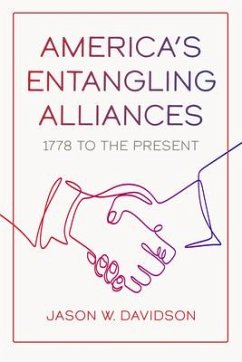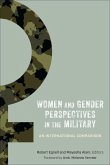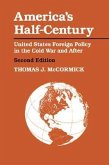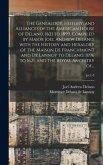POLITICAL SCIENCE / INTERNATIONAL RELATIONS "America's Entangling Alliances . . . brings a new power-centric theory and fresh evidence to bear on explaining US decisions to tie its security to other states'. Davidson challenges cherished assumptions about the United States' role in the world, making a major, policy-relevant contribution to scholarship on US foreign policy and alliance behavior." --William C. Wohlforth, Daniel Webster Professor, Department of Government, Dartmouth College "A tremendous work of research and writing, America's Entangling Alliances will be an invaluable resource for scholars for many years. Davidson convincingly shows that US leaders formed alliances with a host of foreign countries, and increasingly so as America's power and infl uence grew, because they believed that such partnerships would advance US security. This very thorough book provides the critical foundation for determining whether these assessments were accurate, and should inform the future of America's alliance relationships."--Christopher A. Preble, codirector of the New American Engagement Initiative at the Atlantic Council Despite the United States' present-day reputation for avoiding foreign entanglements, since the Revolutionary War the country has entered into dozens of alliances with international powers to protect its assets and advance its security interests. Author Jason W. Davidson examines these alliances to shed light on their nature and to explore what they reveal about the evolution of American power. He challenges the belief that the nation resists international alliances, showing that this has been true in practice only when using a narrow definition of alliance. While more alliances were made after World War II than before it, US presidents and Congress have pursued the country's best interests by entering into a variety of security arrangements over virtually the entire course of the country's history. By documenting thirty-four alliances--categorized as defense pacts, military coalitions, and security partnerships--Davidson finds that the US demand for allies is best explained by looking at variance in the country's relative power and the threats it has faced. America's Entangling Alliances offers a corrective to long-held assumptions about US foreign policy and important insight into current public and academic debates about the costs and benefits of America's allies. Jason W. Davidson is a professor of political science and international aff airs at the University of Mary Washington. He is the author of America's Allies and War: Kosovo, Afghanistan, and Iraq, e Origins of Revisionist and Status-Quo States, and, with Fabrizio Coticchia, Italian Foreign Policy during Matteo Renzi's Government: A Domestically Focused Outsider and the World.
Hinweis: Dieser Artikel kann nur an eine deutsche Lieferadresse ausgeliefert werden.
Hinweis: Dieser Artikel kann nur an eine deutsche Lieferadresse ausgeliefert werden.








